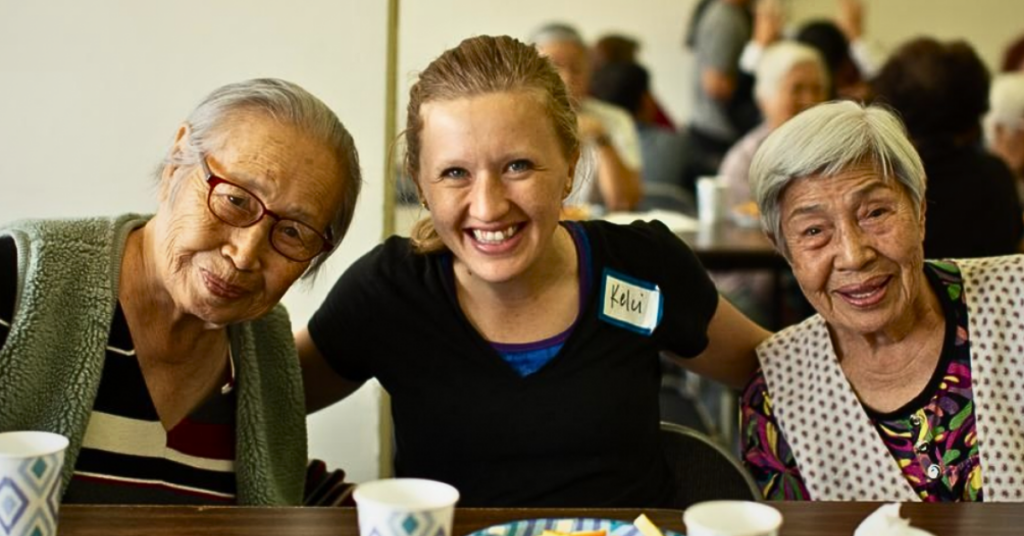On episode 5.52 of the Pivot podcast, Dwight and Dee spoke with Eun Strawser, co-vocational lead pastor of Ma Ke Alo o (which means “Presence” in Hawaiian), community physician, and the author of Centering Discipleship: A Pathway for Multiplying Spectators into Mature Disciples, about the pivot from from membership to discipleship. Legacy congregations were not designed for discipling because an assumed voluntary membership model was believed to be enough. Now that the voluntary membership model is falling away, how do we engage people and make disciples?
Eun’s vocational and cultural background spans continents: born in South Korea, she grew up and went to college and medical school in Philadelphia while dreaming of becoming a medical missionary in East Africa, before feeling a call to Hawai’i and church planting. In a wide-ranging conversation, Dwight, Dee, and Eun, talk about the importance of small groups, the contextual form discipleship always has to take, how church-plant-like innovation can be attempted at established churches, and some specific examples of discipling she’s been a part of and the difference it has made, like the story of Kelci:
Kelci was the best greeter in church. She thought that her full participation in church leadership would be fulfilled by one day becoming the point person for the greeters ministry. In a voluntary membership model, this may have been true. She’s friendly, warm, hospitable, and entirely non-threatening; this is the kind of role she thought she was meant to play. However, Kelci is also a hospice care nurse. She has a deep love for seniors, or in Hawaii, the kūpuna, the revered ones or elders in a community. She also happens to live in a neighborhood where there are three different low income senior living facilities right along a bike path that goes from her condo to her workplace. When Eun intentionally discipled Kelci, they started thinking about questions like: Who is our neighbor? And who do you feel God is inviting you to serve? Kelci’s specific answer was the kūpuna who live in her neighborhood. With that realization, she started gathering a group of people.
Kelci had felt God placing this urge in her heart for years, and it was only through discipleship that she actually did something about it. She wanted to start a faith community made up of people whose whole goal was to love these low income seniors in that neighborhood together. She wondered: What would it mean if the entire ministry was to make these kupuna know that they are seen and known and loved? Could that help eradicate the loneliness so often found in these low income living facilities? She knew that this would be a big ask of people, so Eun and Kelci worked on the vision pitch for months. When Kelci finally shared this with her existing discipleship group (about 25 people), she was only left with five people at the end who said yes to that vision. But since then, her group has grown. Through the worst of the pandemic, they provided a month’s worth of groceries each month to 500 residents. Her group is now the one that the city and county look to, to ask how to do senior low income senior care the best.

Kelci has discipleship “core” groups in the low income senior living facilities she’s been serving. Many of the residents don’t have a lot of family, don’t have a lot of friends. So in their own discipleship, these core groups of people promise to make phone calls so that every resident gets at least one phone call each week. People are coming to faith because of their faithful presence within those facilities.
How did Kelci get started? Bingo and pizza nights. The only overtly Christian aspect that was there from the start was praying over the meal. Eun remembers Kelci telling her that one of the women who came from a Buddhist background would faithfully come just for the bingo. One week, she offered to pray over the meal. And when she did, said, “I realize that you all pray to God and say Father. We don’t say that in my faith, but I want to give it a try.” As soon as she started off, “Father God…” she broke down in tears, having never been able to comprehend a God that could be viewed as a loving, parental figure before that moment.
Seeing the good that came from many people in a low income senior living facility becoming disciples gave Kelci the idea for her next dream: What if an entire neighborhood became Jesus followers? If they were discipled, would they take on the task of adopting one low income senior from each of these living facilities, and then the entire neighborhood would actually become a family together? What Eun and Kelci initially thought was going to be a structured 12-month trial of something easy like bingo and pizza nights, has become something much bigger.
When discipleship is pushed to the periphery of Christian community, it can really limit what the people who attend church can actually do. Kelci would have been really happy being a greeter. But because of a discipleship emphasis, the community now gets to have her as a real leader, someone who’s leading multiple communities because of the love that she has for a particular population of people.
Rather than a particular population, Eun warns that there are times when disciples end up looking to their particular mentor, rather than looking directly at Jesus, as the only one worthy of ultimate emulation. This can overlap of course. Often it is what the Holy Spirit is doing in the mentor that the disciple wants to emulate, but it can easily get off-track. Imitation is a large and important part of discipleship, and it can start on the horizontal level of trying to be more like one’s mentor, but at some point that has to pivot to Christ, because imitating anyone but Jesus will eventually fall short.



